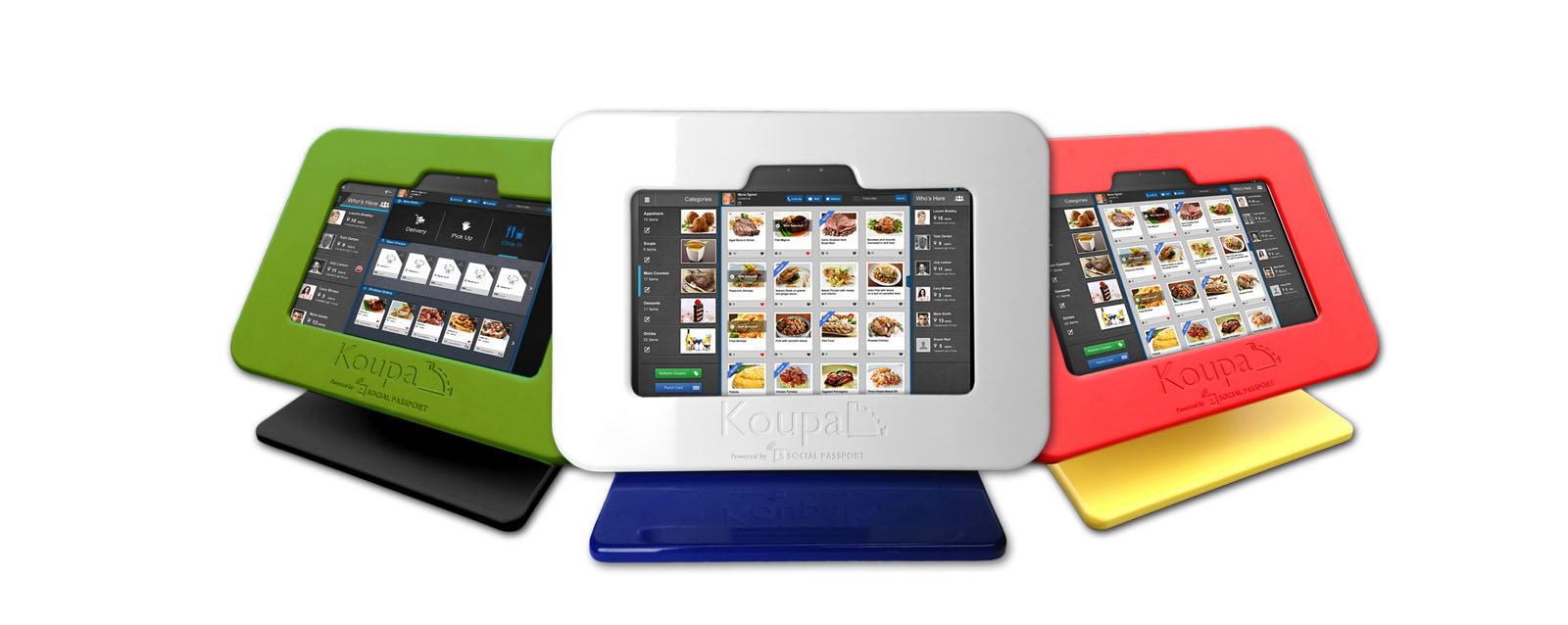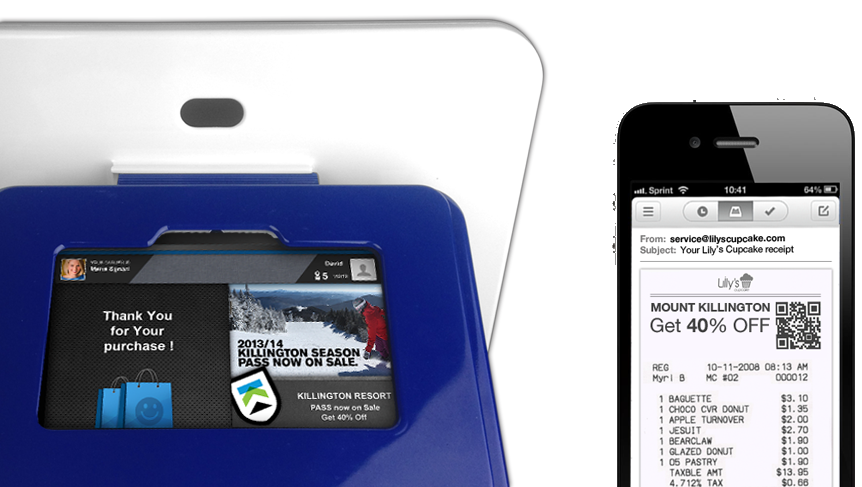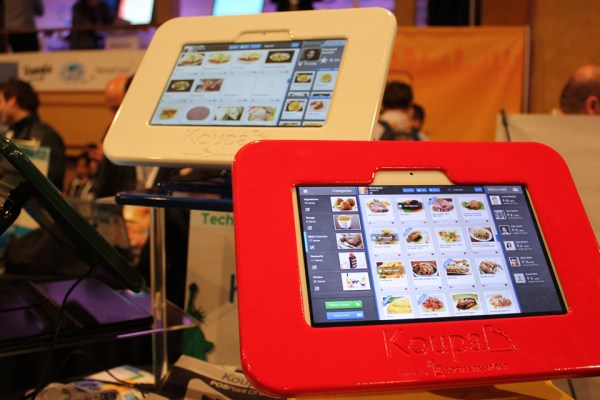TechCrunch Disrupt NY 2013 Startup Alley company Koupah is a fresh take on the tablet-based point-of-sale space, which is growing in popularity among SMBs that want a solution that’s flexible, extensible and less expensive than legacy POS-specific hardware systems. Koupah takes the model a step further by offsetting some or all credit card transaction fees with advertising.
The system works by tracking customers and keeping a record of them across Koupah systems, complete with purchase history and shopping preferences, to help create profiles that can be used to create personalized ads and offers for repeat shoppers. Those promotions will be printed directly on a customer’s bill, and each is designed to target that customer specifically, making for a greater chance it’ll become an actual conversion. The commission that Koupah takes in for displaying those ads is then used to offset the 2.69 percent fee that credit card processors put on credit payments.
 The Koupah system is opt-in, making users tap their devices to activate the profile. It can connect to a second, smaller device on the outward-facing portion of the Koupah terminal to check a user in and bring up their profile, which could include order history, or even favorite orders for faster ordering. Koupah is founded by David Merel who previously built the Social Passport mobile app, a rewards platform that uses NFC and QR codes to track commerce behavior and provide tailored rewards. Social Passport is a key integration for Koupah’s customer profile features.
The Koupah system is opt-in, making users tap their devices to activate the profile. It can connect to a second, smaller device on the outward-facing portion of the Koupah terminal to check a user in and bring up their profile, which could include order history, or even favorite orders for faster ordering. Koupah is founded by David Merel who previously built the Social Passport mobile app, a rewards platform that uses NFC and QR codes to track commerce behavior and provide tailored rewards. Social Passport is a key integration for Koupah’s customer profile features.
 Where Koupah tries to advertise to offset fees, other players in the space like Revel have turned to LevelUp to go transaction-fee-free for its merchants. That system has different downsides, however, since it requires that customers have a LevelUp account for it to work to begin with. Whereas Revel charges for its hardware, Koupah is giving away three terminals per merchant for free, as well as a cash drawer and receipt printer. It makes its money via advertising opportunities and through a 3-cent-per-transaction rate on all purchases to offset hardware and technical support costs.
Where Koupah tries to advertise to offset fees, other players in the space like Revel have turned to LevelUp to go transaction-fee-free for its merchants. That system has different downsides, however, since it requires that customers have a LevelUp account for it to work to begin with. Whereas Revel charges for its hardware, Koupah is giving away three terminals per merchant for free, as well as a cash drawer and receipt printer. It makes its money via advertising opportunities and through a 3-cent-per-transaction rate on all purchases to offset hardware and technical support costs.
Merel said in an interview that the system also supports purchases from mobile devices, delivery orders, take-out and dine-in, so it’s intended as a complete replacement for existing POS and retail/restaurant backends, complete with an analytics platform. The New York-based startup is accepting reservations now for merchants interested in trying it in-store.
